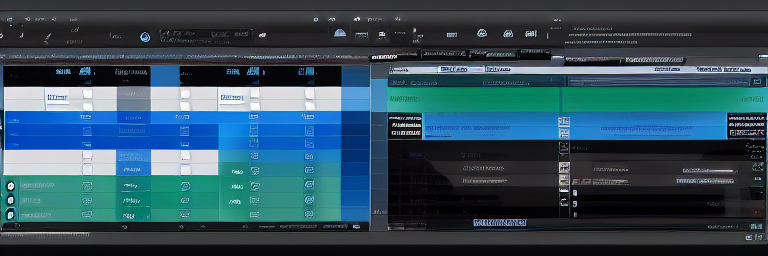What is business management software?
Business management software is used to manage the various aspects of a business, such as finances, operations, inventory, customer relations, and human resources. It helps companies streamline their processes and operations, improve efficiency, and increase productivity.
Software that can be used to automate tasks, such as data entry, payroll, and customer management. Also, it can also be used to track sales and customer trends, as well as analyze customer data to gain insights. Additionally, business management software can provide reports and dashboards to help businesses better understand their financials and track their performance.
Business management software is a critical tool for businesses of all sizes. It provides the tools and insights needed to help businesses stay competitive and improve their bottom line. By automating tasks, tracking customer trends, and analyzing data, business management software can help businesses maximize their efficiency and profitability.
Types of Business Management Software
Business management software is a type of application software that is used to manage business operations and processes. It is used to automate, streamline, and organize various aspects of a business, from customer relationship management (CRM) to financial management, inventory control, and human resources. Business management software can help businesses save time and money, increase efficiency, and improve customer service.
There are many different types of business management software available, ranging from general–purpose applications to specialized solutions. Some of the most popular types of business management software include:
- Customer Relationship Management (CRM) Software: CRM software is used to manage customer relationships, such as sales, customer service, marketing, and more. It can help streamline customer interactions, improve customer service, and increase sales.
- Enterprise Resource Planning (ERP) Software: ERP software is used to manage a company’s core business processes, such as accounting, inventory control, order fulfillment, and more. It can help businesses gain better control over their operations and increase their efficiency.
- Human Resources (HR) Software: HR software is used to manage employee records, payroll, benefits, and more. It can help businesses maintain an accurate and up–to–date record of their employees, as well as streamline their HR processes.
- Accounting Software: Accounting software is used to manage a company’s financial operations, such as accounts payable, accounts receivable, invoicing, and more. It can help businesses stay organized and keep track of their finances.
- Supply Chain Management (SCM) Software: SCM software is used to manage a company’s supply chain, including supplier relationships, order tracking, and more. It can help businesses optimize their supply chain and increase efficiency. Business management software can be a valuable tool for businesses of all sizes. It can help them save time and money, increase efficiency, and improve customer service.
Budget Minded Considerations
When it comes to business management software, it is essential to choose the right one that fits your budget and your business needs. Here are some of the must–have business management software that can help you stay organized and on budget:
- Accounting Software: Accounting software helps you to manage and track financial information, such as invoices, payments, and expenses. It also allows you to generate financial reports and forecasts. Popular accounting software includes Xero and QuickBooks.
- Customer Relationship Management (CRM) Software: CRM software helps you manage customer data and track customer interactions. This type of software helps you build relationships with customers, identify sales trends, and measure customer satisfaction. Popular CRM software includes Salesforce and HubSpot.
- Project Management Software: Project management software helps you manage projects and tasks, identify project milestones, and track progress. Popular project management software includes Asana and Trello.
- Human Resources (HR) Software: HR software helps you manage employee data, track employee time, and manage employee benefits. Popular HR software includes BambooHR and Zenefits.
- eCommerce Software: eCommerce software helps you build an online store and manage online sales. Popular eCommerce software includes Shopify and BigCommerce.
By choosing the appropriate business management software for your budget, you can improve your business efficiency and reduce costs.
Looking to the Future
Business management software has come a long way in the past decade, and it has the potential to become even more advanced in the future. In the near future, it will become more intelligent and automated, allowing managers to focus on more strategic tasks. Businesses will be able to access data more quickly and accurately, allowing for better decision–making.
Businesses will be able to leverage artificial intelligence (AI) and machine learning to automate certain processes and tasks. As well, AI will be able to identify patterns in data and suggest improvements to processes, as well as alert managers of potential risks. Also, machine learning will allow businesses to better predict customer behavior and optimize services to meet customer needs.
Businesses will also be able to use predictive analytics to determine future trends and plan accordingly. Too, predictive analytics will provide companies with insights into customer behavior, sales trends, and other key metrics. This will allow companies to make more informed decisions and adapt as needed.
Also, the cloud will also play a major role in business management software. Cloud–based solutions will allow businesses to access their data from anywhere, anytime, making it easier to collaborate and access information. Cloud–based solutions will also reduce costs associated with hardware and software, allowing businesses to focus on the development of their services and products.
Finally, the future will involve the integration of various existing technologies into a single platform. Connected devices and the Internet of Things (IoT) will allow businesses to leverage data from various sources and create a more unified system. This will allow businesses to easily track progress and make better decisions.
Overall, the future of business management software is bright and businesses should prepare to take advantage of the emerging technologies. The combination of AI, machine learning, predictive analytics, and cloud–based solutions will revolutionize the way businesses manage their operations.

